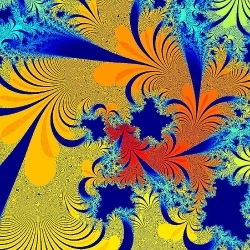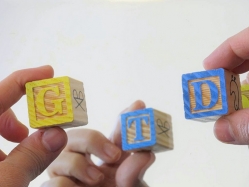
Theory of chaos and networks
Card's author :
Gatien Bataille
Card's type of licence :
Creative Commons BY-SA
Description :
This results of:
Our networks don't escape from this trend:
In an increasingly complex environment, the theory of chaos postulates that a small modification of the process' initial conditions makes the latter complectly unpredictable on the duration.2
This acknowledge fact should lead us to consider our networks as chaotic entities that we should manage in a non linear way, unless we want to be disappointed with the results.
1 http://fr.wikipedia.org/wiki/Th%C3%A9orie_du_chaos
2 http://plusconscient.net/index.php/systemique-et-theorie-integrale/108-francais/438-monde-fractal-opportunite-de-changement
Photo credits: Zimmerman CC BY-SA
Even if the world has always been so, it's getting more and more fractal, chaotic.1
This results of:
- an increase of interacting "agents" (people for example)
- an increase of interacting means (phone, internet...)
- an acceleration of the agent's or of the means of interaction (people are travelling more and more, actions are more and more instantaneous)
Our networks don't escape from this trend:
- more members ;
- more means of interaction (mail, forum, websites, GSM, social networks...) ;
- acceleration of exchanges.
In an increasingly complex environment, the theory of chaos postulates that a small modification of the process' initial conditions makes the latter complectly unpredictable on the duration.2
This acknowledge fact should lead us to consider our networks as chaotic entities that we should manage in a non linear way, unless we want to be disappointed with the results.
Here are some ideas:
- In a chaotic system, it is dangerous to lock oneself in precise forecasts because on the duration it is an unpredictable system. In our networks, it's better to work with wide goals, wide course of action than with expected quantified results.
- In the theory of chaos, the more the disorder grows, the sooner chaos engenders order. Let's favor the arrival of new members and exchanges in all directions in our networks to see the quick emergence of a specific order to it.
- A chaotic system is very sensitive to external conditions and can quickly loose its balance to turn into a state more compatible with its environment. In our networks, let's not seek to limit the influence of external agents (which is specious anyhow) but let's take advantage of these exchanges to enable our network to stay nimble in the way it works and towards its environment.
- A chaotic system is a fractal system (in short: the whole is like one of its part and the details are similar whatever the scale). Our networks are growing fractal as their size increases. Small networks grow within this network. This trend cannot be avoided. Let's simply be cautious that these fractal parts keep on exchanging.
1 http://fr.wikipedia.org/wiki/Th%C3%A9orie_du_chaos
2 http://plusconscient.net/index.php/systemique-et-theorie-integrale/108-francais/438-monde-fractal-opportunite-de-changement
Photo credits: Zimmerman CC BY-SA
